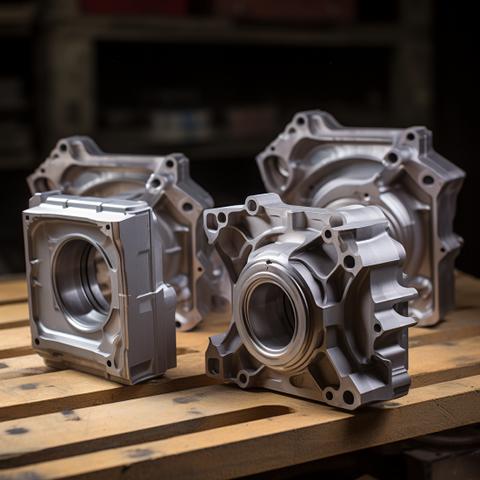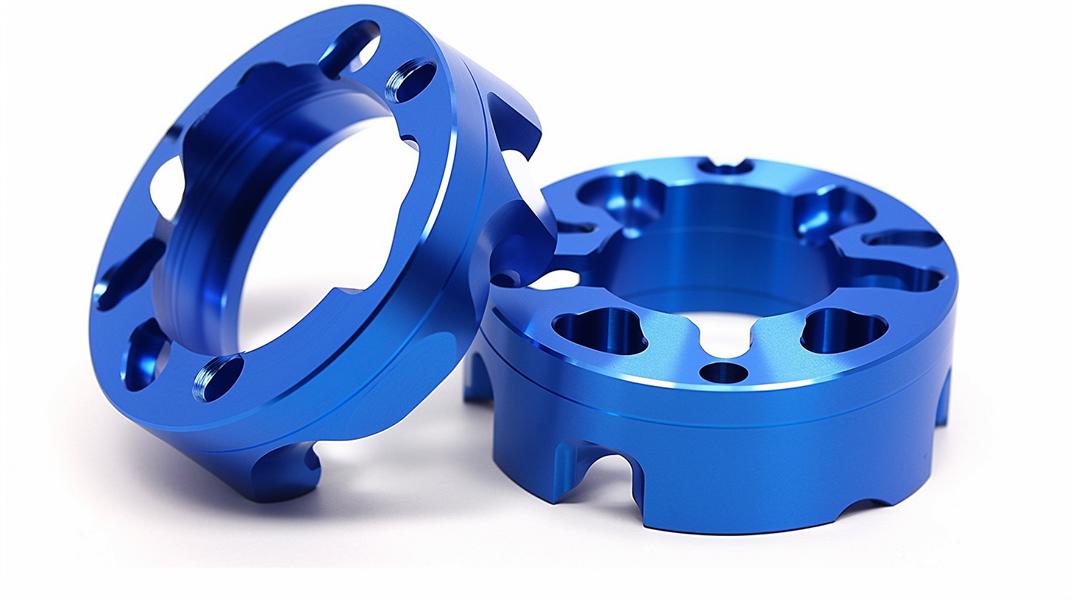In the intricate world of manufacturing, die casting plays a pivotal role, enabling the creation of complex and precise metal components with unparalleled efficiency. Two prominent contenders in the die casting arena are aluminum and magnesium, each with its unique set of properties and advantages. This article delves into the comparative analysis of aluminum die casting and magnesium die casting, shedding light on their material properties, applications, advantages, and potential limitations.
Material Properties:
Aluminum: Aluminum, known for its exceptional strength-to-weight ratio, is a widely favored material in the die casting realm. Its lightweight nature makes it ideal for various applications, particularly in industries where reducing overall weight is crucial. With impressive thermal conductivity and corrosion resistance, aluminum is a go-to choice for manufacturing components requiring durability and longevity.
Magnesium: On the other hand, magnesium takes the spotlight for its unparalleled lightweight properties. Boasting an even higher specific strength than aluminum, magnesium is a favorite in industries where every ounce matters. Its remarkable thermal conductivity and recyclability further contribute to its popularity, especially in sectors where energy efficiency and sustainability are paramount.
Advantages:
Aluminum Die Casting:
- Lightweight Excellence: The lightweight characteristic of aluminum translates into fuel efficiency in the automotive industry and enhanced performance in various applications.
- Strength-to-Weight Ratio: Aluminum’s high strength-to-weight ratio ensures that components can endure rigorous conditions without compromising on durability.
- Corrosion Resistance: The natural corrosion resistance of aluminum makes it an ideal choice for components exposed to harsh environmental conditions.
- Cost-Effectiveness: Aluminum die casting offers a cost-effective solution without compromising on performance, making it a preferred choice for a myriad of applications.
- Wide Alloy Range: The versatility of aluminum alloys allows for tailoring components to meet specific requirements, enhancing design flexibility.
Magnesium Die Casting:
- Extreme Lightweight Advantage: Magnesium’s exceptional lightweight properties make it an indispensable material in industries prioritizing weight reduction, such as aerospace and automotive.
- High Specific Strength: With a higher specific strength than aluminum, magnesium ensures components can withstand stress and load while maintaining a lightweight profile.
- Thermal Conductivity: Magnesium’s high thermal conductivity is valuable in applications where efficient heat dissipation is crucial, such as electronic components.
- Recyclability: Magnesium’s eco-friendly appeal is further heightened by its recyclability, aligning with the growing emphasis on sustainable manufacturing practices.

Applications:
Automotive Industry:
- Aluminum Applications: Aluminum’s prevalence in the automotive industry is evident in engine components, transmission cases, and structural parts, contributing to enhanced fuel efficiency.
- Magnesium Applications: Magnesium shines in applications like lightweight structural components, transmission cases, and steering components, supporting the automotive industry’s pursuit of weight reduction for improved performance.
Aerospace Industry:
- Aluminum Applications: In aerospace, aluminum is the material of choice for components like aircraft frames, panels, and engine parts, balancing strength and weight considerations.
- Magnesium Applications: Magnesium’s lightweight properties find applications in aircraft components, reducing overall weight and improving fuel efficiency.
Electronic and Consumer Goods:
- Aluminum Applications: Aluminum’s versatility extends to electronic housings, consumer electronics, and appliances, where its corrosion resistance and sleek appearance are highly valued.
- Magnesium Applications: Magnesium’s thermal conductivity makes it ideal for electronic components where efficient heat dissipation is crucial, ensuring the longevity and reliability of devices.
Limitations and Challenges:
Aluminum Die Casting:
- Limited Melting Point: Aluminum’s relatively lower melting point may pose challenges in high-temperature applications, necessitating careful consideration of operating conditions.
- Reduced Creep Resistance: At elevated temperatures, aluminum exhibits reduced creep resistance, which may impact its performance in certain applications.
Magnesium Die Casting:
- Flammability Concerns: Magnesium’s flammability at high temperatures requires stringent safety measures during the die casting process.
- Higher Tooling Costs: The unique characteristics of magnesium may result in higher tooling costs, demanding a careful cost-benefit analysis in manufacturing decisions.
Manufacturing Process:
Die casting, regardless of the material used, involves several common steps. The specifics of aluminum and magnesium die casting processes, however, showcase the nuanced approach required for each material to achieve optimal results.
Environmental Impact:
Both aluminum and magnesium die casting contribute to sustainable manufacturing practices through recyclability. The environmental benefits of recycling these materials align with global efforts to reduce the carbon footprint of manufacturing processes.
Conclusion:
In the dynamic landscape of die casting, the choice between aluminum and magnesium hinges on a thorough understanding of their respective properties and applications. GC Precision Die Casting China Company stands as a testament to the precision and expertise in the die casting industry. As technology evolves and sustainability becomes increasingly crucial, the decision between aluminum and magnesium will continue to impact industries worldwide, shaping the future of manufacturing.
Welcome to GC Precision Mould, your premier China die casting manufacturer and China Mold Maker. We specialize in producing high-quality plastic molds, die casting molds, and a wide range of die cast parts from materials such as aluminum, zinc, and magnesium.
At GC Precision Mould, we are dedicated to providing our clients with the best possible aluminum die casting and other casting products and services. Our team of experienced engineers and technicians use the latest technology and techniques to ensure that every part we produce meets the highest standards of quality and accuracy.
Our products are widely used in a variety of industries, including automotive, consumer electronics, medical, and industrial equipment. We work closely with our clients to understand their specific needs and develop custom solutions that meet their unique requirements.
Whether you need a single plastic mold or a complete die casting production line, we have the expertise and resources to deliver exceptional results. Contact us today to learn more about our services and how we can help you achieve your manufacturing goals.
If you have a project that needs Die casting China for your die casting project or mould suppliers to make injection molding products, contact us to get the best price now.

Recent Comments